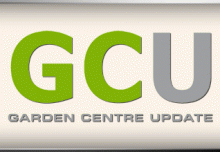Pop-up shop the InConvenience Store will take ‘shoppers’ on a journey to a future without nature, showing the grim reality of what life in the UK could look like, but a new RSPB report shows how different things could be if the UK Government invested in nature.

July 1 marks the centenary of the 1921 Importation of Plumage (Prohibition) Act (banning the import of feathers for fashion) the RSPB’s first successful campaign to protect nature – one hundred years later the stakes for nature are higher than ever before.
Today pop-up shop, the InConvenience Store, opens in central Manchester, Edinburgh and Cardiff, taking members of the public on an immersive shopping trip to a dystopian future in which nature has collapsed, our skies have fallen silent and entire cities have disappeared under rising seas.
The InConvenience Store shows the public how a future without nature will impact their lives. Its products – like sandbags, clean air and drinking water paint a grim picture of everyday essentials we’d need to survive if nature’s no longer helping us combat problems like pollution and flooding.
A new RSPB report also launched today shows how the UK Governments could change the course of history and even unlock £6.4 billion in public benefits – dwarfing public sector spending on nature in 2018/19 by over 1,000%.
The report shows how nature is crucial to our efforts to revive our world by storing carbon, helping to prevent flooding and safeguard communities’ way of life, all while creating amazing havens for wildlife that everyone can enjoy.
From the Solent coastline in Southern England, where saltmarsh stores carbon ten times faster than trees and helps shield communities from the devastation of rising sea levels, to the Scottish highlands where the RSPB is working with other land owners to restore native woodlands to their ancient boundaries, the report highlights five case studies from across the UK showing how our natural wonders are already delivering an incredible return on investment.
The RSPB’s analysis of the most carbon and nature rich areas showed the UK Government could produce £6.4 billion a year in carbon storage, air quality and recreational benefits by harnessing the power of nature. For every £1 invested in saltmarsh, peatland or woodland restoration and creation an average £3 in benefits is returned.
The analysis looks at carbon storage, recreation and air quality benefits for three habitats – woodland, peatland and saltmarsh. But this is the tip of the iceberg – the £6.4 billion figure does not include a host of other benefits including water quality, flood management, job creation and temperature regulation and combating noise pollution.
Beccy Speight, chief executive of the RSPB said: “The nature and climate emergency is not a terrifying but distant disaster our grandchildren will have to deal with. More than 50 per cent of our wildlife is in decline and extreme weather is putting our homes and our health at risk now.
“Nature, if we invest in it, could be one of our greatest weapons against climate change. Our coastlands, woodlands and peatlands are more than just beautiful landscapes – a hidden power lies beneath. These nature habitats lock in huge amounts of carbon, provide homes for endangered wildlife and protect our homes from extreme weather. Our governments must change the course of the future and unleash nature’s potential, before it’s too late.”
Without nature, we risk a truly dystopian future. Instead of hula hoops and fizzy pop, corner shop essentials could include cans of breathable air, precious bottles of unpolluted drinking water and sandbags to protect our homes from constant flooding.
Open from July 1- 8, the InConvenience Store will also sell insect protein as meat and fish will have become too expensive and scarce for most consumers to buy, birdsong vinyl to recreate the lost treasure of live birdsong and UK grown rice – one of the few crops which can survive the new hotter, wetter climate. Fruit at the InConvenience Store is now a pricey luxury item after the extinction of pollinators saw prices skyrocket as human pollinators have had to step in. It’s vital that this imagined future is not allowed to become a reality.
World leaders are negotiating last-resort targets to save nature at two global summits this year. The RSPB wants the public to support their campaign by visiting an online shop and helping add a selection of survival items to shopping baskets that will be handed over to the UK’s political leaders at the end of the eight days. This shopping trip doesn’t need your money – just your name. Every time 15,000 names are added, another product will put in the basket. Our message to them – this year we need you to lead the world’s efforts to save nature by setting an example other nations can follow – we need targets for nature’s recovery at every level of government.
Beccy added: “Today we mark the centenary of the 1921 Importation of Plumage (Prohibition) Act (banning the import of feathers for fashion) the RSPB’s first successful campaign to protect nature.
“A century later, with the nature and climate emergency pushing us into the sixth extinction event, the stakes are higher than ever before. With fifteen per cent of UK species at risk of extinction, the crisis is very close to home. We need every voice raised for nature – the future of our incredible wildlife depends upon it.”
To find out more about how the RSPB is helping everyone call on politicians to revive our world visit www.rspb.org.uk/reviveourworld.



